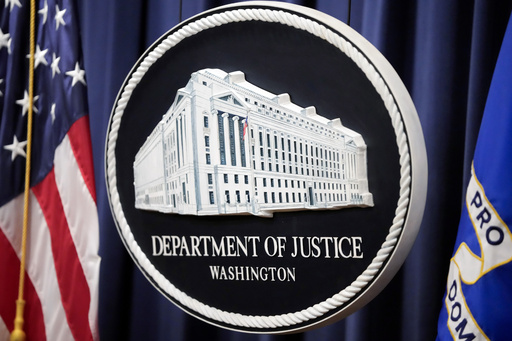WASHINGTON — Federal prosecutors did not adhere to several Justice Department protocols when they seized the communications of journalists during media leak probes in the Trump administration, as outlined in a newly released watchdog report. This aggressive tactic of pursuing the sources of journalists could potentially reemerge.
The document, published by the Justice Department’s inspector general, also revealed that multitudes of congressional staffers had their communications records accessed based solely on their engagement with classified information in alignment with their job duties.
One notable individual affected was Kash Patel, who was selected by President-elect Trump for the FBI director position. At the time, Patel worked on the House Permanent Select Committee on Intelligence, investigating Russian election interference. He previously mentioned in a lawsuit that he received a notification from Google indicating that, in 2017, a grand jury subpoena had been issued for his records by the department.
While the report focuses on actions from years past, the topic holds renewed importance as Patel has publicly expressed his intent to target journalists who he believes misled the public about American citizens, as well as his conviction that the government should eliminate “conspirators” against Trump.
This raises concerns that the new Justice Department leadership, under Trump’s nominated attorney general, Pam Bondi, may overturn a policy enacted three years ago, which limits the conditions under which prosecutors can secretly obtain reporters’ phone records during investigations into sensitive information leaks.
In 2021, Attorney General Merrick Garland responded to backlash regarding revelations that the Trump administration had accessed journalists’ records from notable news organizations like The Washington Post, CNN, and The New York Times, as part of investigations into national security leaks concerning Russian interference in elections.
The inspector general highlighted that the Justice Department did not abide by specific established rules when pursuing reporters’ records in 2020. This included failing to present requests to the News Media Review Committee, designed to allow various officials, except prosecutors, to evaluate these actions. Additionally, the department neglected to secure explicit approval from the then-attorney general for non-disclosure orders that obstructed reporters from quickly learning about the subpoenas targeting their records.
The report expressed concern over these oversights, particularly given the recent changes made to the department’s News Media Policies in 2014 and 2015 in response to harsh criticism regarding its previous attempts to access media communications.
Bruce D. Brown, executive director of the Reporters Committee for Freedom of the Press, stated that the government’s seizure of journalistic records undermines public interest and poses significant First Amendment challenges. He emphasized the urgency for legislation to protect reporters and their sources by preventing the government from compelling journalists or tech companies to disclose sources’ identifying information.
The Justice Department also accessed the records of Democratic Representative Eric Swalwell and then-Representative Adam Schiff concerning leaks in the Russia investigation while also soliciting data from Apple regarding former White House counsel Don McGahn. According to the report, inquiries were made into the records of two Congress members and 43 congressional staffers. The inspector general could not ascertain any evidence of political retaliation or malice by the prosecutors who initiated these requests.
Many staffers were deemed suspects solely due to the timing of their access to classified information as part of their official roles, coinciding with news articles that included secret details. The report affirmed that Garland’s policies outlined various scenarios under which the Justice Department could still lawfully access reporters’ records. This includes cases where journalists may be suspected of working with foreign agents or terrorist entities, under investigations for unrelated issues, or acquiring their information through unlawful means.
Under both Democratic and Republican administrations, the Justice Department has faced challenges in finding a balance between respecting press freedom and protecting sensitive national security information. Previous administrations have witnessed similar issues, with President Barack Obama’s attorney general, Eric Holder, updating leak investigation guidelines in response to significant uproar over privacy invasions, and Jeff Sessions, Trump’s first attorney general, launching a crackdown on leaks during his tenure following revelations tied to Russian election interference.




